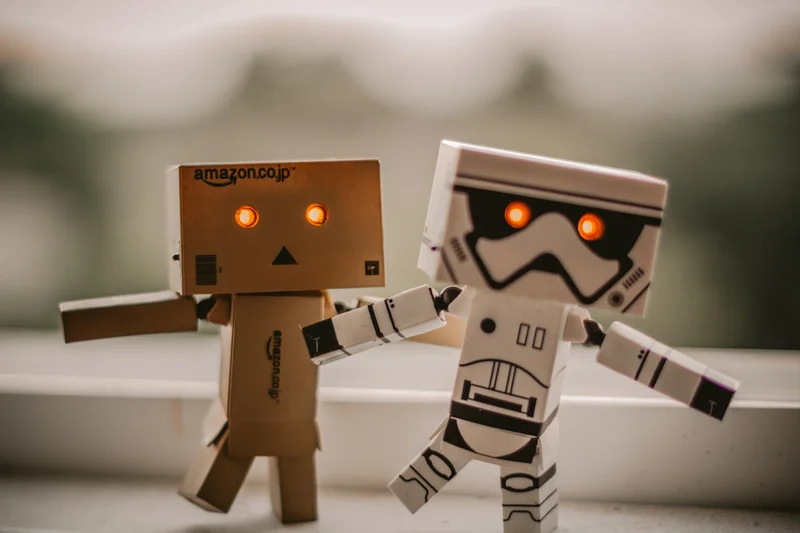The Dawn of the Autonomous Alchemists: How Robots Are Rewriting the Rules of Innovation
Imagine a world where scientific breakthroughs aren't just the result of painstaking human effort, but of a seamless collaboration between humans, AI, and robots. That's not science fiction anymore, folks—it's the reality Xpeng is actively building, and honestly, it's got me buzzing with excitement.
Xpeng's plan to integrate solid-state batteries into their humanoid robots? That's just the tip of the iceberg. The real game-changer is their investment in self-driving laboratories (SDLs). We're talking about labs where robots, guided by AI, are autonomously conducting experiments, accelerating the pace of discovery in ways we've only dreamed of until now. I mean, the implications of this are absolutely staggering.
The Lab of the Future, Today
Think about traditional catalyst discovery. It’s slow, resource-intensive, and honestly, a bit like throwing darts in the dark. Researchers spend years tweaking variables, running experiments, and sifting through data, often with limited success. Now, picture this: instead of a lone scientist hunched over a workbench, you have a team of tireless robots, each performing complex tasks with pinpoint accuracy, guided by AI algorithms that can analyze data and make decisions in real-time. It’s like replacing a horse-drawn carriage with a rocket ship.
These SDLs, at their core, are a symphony of hardware, computational modeling, and AI-guided decision-making. They combine automated synthesis and testing platforms with sophisticated data infrastructures and AI brains. They don’t just perform experiments; they learn from them, constantly refining their approach to achieve optimal results. The recent Nature Catalysis article highlighting the collaboration between humans, AI, and robots in autonomous catalysis research? That's not just a paper; it's a glimpse into the future of scientific exploration.
Xpeng isn’t alone in this pursuit, of course, but their commitment to integrating these technologies across their entire ecosystem—from battery development to robotics—is what sets them apart. And get this: they're aiming to have their first batch of robots, powered by solid-state batteries, working as salespeople and tour guides by the end of 2026! I mean, that's just around the corner.

Now, I know what some of you might be thinking: "Robots replacing human scientists? That sounds like a dystopian nightmare!" But I see it differently. This isn't about replacing humans; it's about augmenting our abilities. It's about freeing us from the tedious, repetitive tasks that consume so much of our time and energy, allowing us to focus on the bigger picture: designing experiments, interpreting results, and pushing the boundaries of human knowledge. What new heights can we reach when we combine the intuition and creativity of human scientists with the tireless precision of AI-powered robots?
And let's not forget the potential benefits of solid-state batteries. These batteries replace the flammable liquid electrolyte used in traditional lithium-ion batteries with a solid material, making them safer, more efficient, and longer-lasting. Imagine the impact this could have on electric vehicles, renewable energy storage, and countless other applications. It's a paradigm shift, plain and simple. It's like moving from candlelight to electric light. Xpeng is aiming to use this technology in their robots, according to a recent Chinese EV maker plans to use solid-state batteries in humanoid robots - Financial Times article.
But, of course, with great power comes great responsibility. As we delegate more and more tasks to AI and robots, we need to be mindful of the ethical implications. We need to ensure that these technologies are used responsibly and that they serve the best interests of humanity. The algorithms that drive these SDLs need to be transparent and accountable. And we need to create a workforce that is equipped to thrive in this new era of human-AI collaboration.
The Future is Being Written in Code
This isn't just about faster experiments or better batteries. It's about a fundamental shift in how we approach scientific discovery. It's about creating a world where innovation is democratized, where anyone with a brilliant idea can leverage the power of AI and robotics to bring that idea to life. What does this mean for the future of medicine? What new cures can we discover when AI-powered robots are tirelessly screening millions of compounds, searching for the perfect match? What new materials can we create when robots are autonomously synthesizing and testing countless combinations of elements? I honestly get chills just thinking about it. And Xpeng is on the bleeding edge of this.
